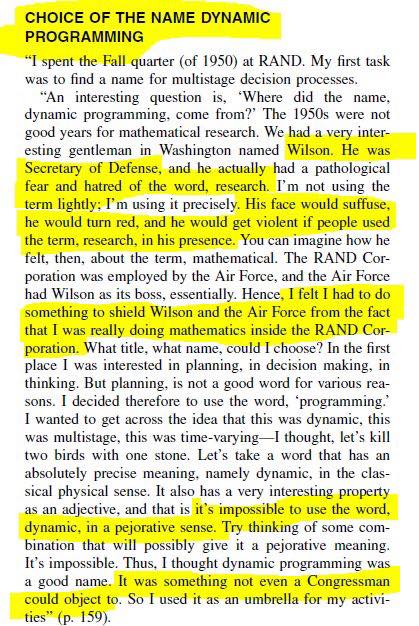One of my seniors had a job interview and he was asked why it is called dynamic. He couldn't answer and after he gave up the interviewer said that there's nothing dynamic about it, its just called like that. That is hard for me to believe.
Does it refer to the fact that the subproblems are solved during run-time and used in reaching the final goal? Like dynamic memory allocation that happens during run-time?
[ANSWER]
I should have read this wiki article before asking the question, sorry.

